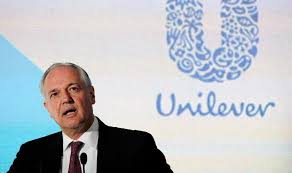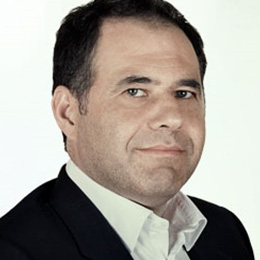The Style Section Meets State Craft: Amal Clooney and the Foreign Policy Influencers
April 26, 2019
Even on a slow news day, the appointment of Amal Clooney as UK Special Envoy for Press Freedom wouldn’t have elicited much more than a glance at a headline to a gossip column item of little relevance to anyone outside her immediate circle of Royals, war criminals, and fashion editors. After all, the once globetrotting lawyer and now jet setting campaigner is no stranger to the honors and accolades handed out to her by the lofty institutions who gain from currying her favor, or her movie star husband’s.
Whatever the mission, Madame De Clooney can be counted on to don magisterial robes over a fashion forward ensemble in this season’s palette of scorched earth tones in keeping with her carefully crafted image of a justice-dispensing fashion warrior. You might sum up her role in world affairs as “The Style section meets State Craft”.
“Even in stilettos, Ms Clooney flits effortlessly from The House of Lords to La Maison Du Dior. The world stage is her catwalk and her long, brisk stride takes her from a refugee camp one day to a glittering fundraiser the next... ”
If you have been Keeping Up with the Klooneys, you would know that (K)amal single-handedly resolved a crisis in Darfur just hours before hosting the Met Ball, and successfully delivering twins by Caesarian section that very morning.
By now, you might have noticed that your squalid life doesn’t quite measure up to Lady Clooney’s blessed existence. Chances are you didn’t wake up this morning next to a beautifully unshaven Hollywood legend in your palatial Italian villa and successfully re-negotiated the Magna Carta as you got the twins off to their Lake Geneva nursery retreat.
Clearly, George Clooney did well by trading up a string of baristas (and a pet pig) for a single barrister. Say what you will about the lifestyle of the rich and famous humanitarian, but let’s see you condemn ISIS in several dozen languages, while gazing prettily at the chief architects of the present mayhem playing out over much of the Middle East.

What is notable about this otherwise predictable and yawn-inducing appointment of a celebrity crusader to a boutique posting of little relevance to the people it is intended to “save”, or even the lesser mortals it is meant to impress, is the timing. But first, one has to marvel at the irony of a “human rights advocate” accepting a position in the UK’s Conservative government at the behest of Jeremy Hunt, (right) its “Right Honorable” Foreign Minister.
She might as well have accepted a Golden Bone Saw from the blood stained hands of Bin Salman himself. Ms Clooney’s new boss has never been shy expressing his support for Saudi Arabia, or the refugee-killing regime’s military intervention in Yemen.
Let’s not forget, either, that the husband of the UK’s Special Envoy for Press Freedom is an outspoken critic himself of the media, using his very public platform to condemn its right to say unpleasant things about him, his wife, or the Duchess of Sussex. Over the years, George Clooney has had harsh words for the Fourth Estate that threatens the tranquility of his own vast property in the Italian countryside.
Now let’s consider the timing of press freedom’s most photogenic booster claiming her honorary position just days before a clearly ill journalist/publisher was dragged into a waiting prison van by British secret police from the Ecuador embassy, where he had claimed asylum.
You would think that having endured almost seven years of harassment at the hands of multiple governments all seeking to punish him for plying his trade, a lawyer would have seized the opportunity to condemn the illegal maneuver, just as a human rights advocate would have pointed out that a $3.8 billion “aid” package to Ecuador’s Judas-in-Chief Lenin Moreno from the US government in exchange for the head of Julian Assange was clearly a violation of every principle laid out in the Geneva Conventions in regard to asylum seekers. Mrs Clooney, it turns out, shares the current US president’s disdain for people fleeing persecution.
More remarkable still, is the fact that the newly appointed ‘Envoy for Press Freedom’ was once on the legal team that failed to establish Assange’s innocence in the wake of rape allegations, and secure his release.

How fitting that Julian Assange’s former lawyer is now a mouthpiece for the very forces hoping to silence him.
Without considering the timing of this poorly stage-managed ‘coincidence’, you might have thought (wrongly, that is) that this very public face of “Press Freedom” would leverage her position into something more than the British government’s official cricket sound maker.
She might have even uttered a few words for whistle blowing political prisoner Chelsea Manning now languishing in a U.S. Federal prison on equally trumped up charges related to Assange’s case.
Instead, she is calling out Myanmar on its treatment of journalists, agitating for the release of two Reuter’s reporters being detained for “handling official secrets”, which their supporters correctly argue is tantamount to journalism.
The same argument can be made for Wikileaks and its imprisoned publisher. Sadly, it’s a line of defense Amal Clooney reserves exclusively for defendants whose release would only embarrass the now irrelevant, universally despised Han Syuu Ki in a country of little strategic interest to her multinational benefactors.
While researching violations of press freedom, did the UK’s most-enviable envoy ever come across the names of Iraqi Reuters employees Saeed Chmagh and Nadir Noor-Eldeen, who were executed without trial by US forces in two Apache helicopters in the Iraqi suburb of New Baghdad in 2007? Both unarmed men on assignment, (along with the civilians they were traveling with) received a death sentence carried out by US forces, who also opened fire on a van that had stopped to assist the wounded, injuring the driver’s two children inside the vehicle.
Thanks to an anonymous military source, part of the video shot from inside the helicopter was obtained by Wikileaks and released on its website. The whistleblower will never enjoy the protection of a high powered envoy, but will live in fear of that she will one day exact her revenge. It’s doubtful, too, that Clooney will ever take up the cause of the two Palestinian journalists more recently murdered by Israeli forces while covering the Great Return marches, where hundreds of unarmed protesters were similarly slaughtered.
Considering Clooney’s betrayal of her former client (and the principles she ceremonially upholds) it’s of no small consequence that her advocacy on behalf of the Greek government for the return of its Elgin marbles from the British Museum resulted in Greece eventually dropping their claim.
The plaintiffs in this still plundered, cash-strapped nation were spooked by their legal advisor’s insistence of filing it immediately, upping the pressure with “a now or never” ultimatum, while ignoring the fact that an unfavorable verdict would have prevented Greece from asserting its ownership rights for any foreseeable future.
Greece has instead decided to pursue diplomatic channels, relying on increased public support for its attempts to re-patriate its priceless cultural artifacts.
Based on Clooney’s unsatisfactory, if not reckless, handling of the case, it’s hard to tell just who the Greek government’s lawyer was advocating for. Based on her willingness to represent the interests of the British government as its official, crime-concealer, it has become a little more obvious.

By now, you might be asking yourself if the famed International lawyer is reaping the rewards of failure by having scored a bigger victory – successfully staving off a threat to the Imperium’s own claim on the plundered treasures it holds in its museums. Clooney wouldn’t be the first undeserving offspring of privilege to scale the cloud-capped heights of mediocrity where the real rewards await the incompetent.
On these points it’s hard to reconcile Ms Clooney’s inability to get things done with accolades she’s accumulated since capturing the ring finger of an infamously marriage-averse movie star.
It’s still unclear why she and her legal team departed ways with Assange while he was fighting extradition to Sweden, where the possibility of undergoing more “enhanced” interrogations at the hands of American officials remained a threat.
Within a few years of “falling out” with the political prisoner she was supposedly defending, (presumably over his decision to accept Ecuador’s offer of asylum) the now celebrity legal expert was helping her movie star husband raise money for the person largely responsible for her former client’s ongoing and worsening legal woes.
The Clooney’s would go on to host a star-studded fundraiser for Hillary Clinton whose presidential campaign was quickly unraveling after Wikileaks made the contents of her emails public, revealing the corrupt machinations behind her candidacy, and even exposing her bloody fingerprints in glaring relief at the scene of her State Department’s war crimes.
Clooney’s less-than-stellar track record on actually accomplishing anything for the clients she has represented may very well be a ‘plus’, looking at it from the vantage point of the political class she represents. Who better than a state banquet table centerpiece – eye-catching but ultimately irrelevant – to be its ornamental emissary to speak on behalf of the people they bomb.
Raising awareness about refugees, or rather diverting attention away from the actual causes that create millions of stateless people worldwide to live in squalor and uncertainty is the stock and trade of “Goodwill Ambassadors” like Amal Clooney and Angelina Jolie.
The lackluster, power-serving “advocacy” they peddle at the behest of powerful governments and world bodies, does, if anything, a deliberate public disservice.
Relying on the “fact finding” mission statements of Barrister Barbie or her frenemy cohort Blood Barbie after visiting rape victims in a famine and drought-stricken war zone, one would conclude that philanthropy-based neoliberal interventions were the only bulwark against human misery and environmental catastrophe.
Implicit in this falsely and deliberately constructed narrative is the “necessity” of more aggressive and far-reaching military objectives to ensure their implementation.

Angelina Jolie has similarly helped spin the prevailing storyline of helpless and victimized people for whom American bombs are the only hope of escaping their torments.
Unsurprisingly, considering her role as Empire’s Auteur, Jolie’s vanity projects reflect a range of US foreign policy objectives over the last 70 years, and stay faithful to the scripted talking points that originally sold them to the American public.
The threat of Islamic radicalism, Japanese Imperialism, communism, and even the socialist satellite states of the former Soviet Union are upheld as justifications for the American and NATO forces who would eventually save the day.
Not surprisingly, her films have failed to achieve anything beyond the “critical success” they enjoy from a handful of celebrity admirers and the aid workers they valorize.
Unlike old school agitprop with its obvious agenda, Jolie obscures her own behind the blandly expressed beliefs and ideals that justify war.
‘Good (NATO and by implication, Enola Gay) versus Evil’ (al Qaeda, the former Yugoslavia) are presented with dutiful adherence to the storylines that are dictated to the New York Times from the policy wonks who craft them.
Her consistently money losing projects attempt to dramatize the UN reports she is tasked with reading to become violent
informercials for the charities she publicly represents and the interests she privately serves. This obfuscating of an actual viewpoint beyond “Serbian rape is bad” and “I can’t believe they beheaded my husband!” is much in line with the neoliberal doctrine she upholds as its Chief Misinformation Officer.
Warmongering can no longer rely on belligerence or even an explicitly stated doctrine. Yesterday’s propaganda was the output of governments in the service of munitions makers and industrialists. Today’s “marketing campaigns” reflect a paradigmatic shift in power that prioritizes the same needs of the tech and financial sectors now holding the reins.
Propaganda arouses the urge of the masses to act (too unpredictable), marketing inspires individuals to feel. It assures us that we can be agents of change by cutting and pasting a hashtag, or re-using a pet bottle. It gives out little ribbons for our participation, but still insists we cover the cost through charitable donations to house and feed people made impoverished by the humanitarian bombs lobbed at them by bankers.
Our overlords have made themselves pitchfork-proof by transforming state violence into tax-deductible, philanthropic enterprises, replacing local, self-sustaining initiatives (socialism) with global, dependent ones (capitalism). How to sell a terrible, and ultimately self-defeating idea? Enter Amal Clooney and Angelina Jolie, heading a pack of mostly female emissaries from the world of entertainment, to “shine a light” on all the market-driven alternatives to all the head chopping and female genital mutilation that goes on in the absence of ‘Democracy’.
The work of creating failed states, de-stabilizing economies, imposing austerity and of course, “upholding human rights” now requires a smooth feminine hand (rather than an iron first) to guide those drones and missiles – directly into the heart and minds of the public.
Like super-heroes of the Instagram age, foreign policy influencers like Clooney and Jolie, (who have replaced Uncle Sam and Rosy the Riveter) do quick costume changes into reading glasses and/or Islamic headscarves for their photo-op missions, representing causes ranging from select famines to rape. Ever present in the media and ‘hot spots’ where American hegemony is or has been challenged (Syria, Darfour, Kosovo, Afghanistan, Venezuela . . . ) but notably absent where Saudi Arabia or Israel carry out the atrocities (Gaza, Yemen . . . ). These usually self-described feminists agitate for a muscular military response to protect mostly brown and Muslim women from their jihadist menfolk, and the rest of us from the knowledge of what radicalized them in the first place.
The weaponization of feminism is nothing new
Whether launching its American brand overseas to undermine local efforts to organize more equitable societies, or applied domestically as a tool to exact fearful compliance to workplace regulations, the philosophy as it is defined today is little more than a tenet of neoliberalism’s unstated ideology; a hybrid of the SCUM Manifesto and an HR Code of Conduct manual that promotes ‘equality’ through individual campaigns of hash tagged retribution. Notably absent from its array of causes and concern is wealth-redistribution.
Gloria Steinem is less known for her role as director for the CIA-funded Independent Research Center from 1958-62 than the quotable, photogenic leader of the “Women’s Movement”.
Seldom mentioned is the support this “radical” organization received by the government and right wing corporate funding long after Steinem’s first visit to a ‘Youth Festival” in Moscow, where she served as the spook agency’s “eyes and ears on the ground”.
Little Gloria, Happy at Last to be a covert, Cold War asset, showing them ‘Russkies’ the “progressive” side of Imperialism, while ratting out actual feminists in solidarity with her Soviet and Eastern Bloc counterparts.
Today the one time militant feminist (literally) and torch bearer for Astroturf activism has passed the flaming implement onto a new generation of Gatekeepers tasked with de-radicalizing social movements, and siphoning the funds and efforts that empower them into corporate and military coffers.
Jolie and Clooney, both unapproachable and preposterously un-relatable, reflect an ideology that is similarly well out of reach to anyone attempting to define it. Liberal by default and neocon by design, this elite-led, often contradictory set of principles known as neoliberalism relies on the star power of glamorous boosters to make the case for military aggressions, along with promoting the billionaire-headed initiatives that apply bandaids where their visible wounds threaten to launch an anti-war movement.
Jennifer Matsui is a writer living in Tokyo.
More articles by: Jennifer Matsui

























